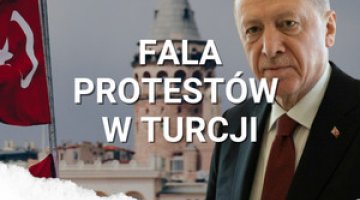Continuation of the Turkish-Iraqi political crisis
On 7 November, without giving any reasons, the Iraqi government withdrew its permission for TPAO, the largest state-owned Turkish oil company, to explore oil in the deposits near Basra. The consortium of which TPAO was a member was promised in May that it would receive a twenty-year license for the extraction of oil. As a result of Baghdad’s decision, the company was forced to sell its 30% share in the consortium.The decision was preceded by a statement by the Prime Minister of Iraq, Nuri al-Maliki, about his desire to strengthen economic relations with Turkey provided Ankara does not interfere in the country’s internal affairs and does not violate Iraqi airspace. At that time, Turkey had conducted raids on positions held by Kurdish guerrillas (the PKK) in northern Iraq.
Commentary
-
Baghdad’s decision has weakened TPAO’s expansion plans, but it does not mean an end of the group’s presence in Iraq, where it is participating in four other exploration and production investments. However, the Iraqi government’s action shows that it is ready to make economic cooperation with Ankara dependent on the latter meeting its political demands, which puts Turkish investments in this country at risk. Iraq is the second largest recipient of Turkish exports (over US$8 billion in 2011; according to estimates, approximately 70-80% of Turkish-Iraqi trade is with the Kurdistan Region, a federal entity with its capital in Erbil which has broad autonomy within Iraq) and a major recipient of Turkish investments. Turkey also has the ambition of gaining a significant stake on Iraq’s energy market. Further retaliation against Turkish companies would pose a threat to Ankara’s economic interests, especially in the areas directly controlled by Baghdad.
- The Iraqi government’s move was politically motivated, and represents another chapter in the crisis between Ankara and Baghdad. Turkey has accused the Shiite-dominated government of Maliki of authoritarianism and a desire to monopolise the political scene by isolating the large Sunni minority, as well as of tacit support for the Assad regime in Syria. For its part, Baghdad is against Turkish support for the opposition and Ankara’s strengthening of ties with the Kurdistan Region while bypassing the central government. The crisis worsened when Turkey gave shelter last year to Iraq’s Sunni vice-president Tariq al-Hashemi (who had been sentenced to death in absentia). Relations deteriorated further when Turkey signed a contract with Erbil this May to supply and refine oil, despite opposition from Baghdad.
- Due to the importance of economic relations with the Kurdistan Region and the counterweight which it poses to the PKK (whose main camps are located in northern Iraq), one may expect that Turkey will continue to build up its links with the Kurdistan Region while bypassing Baghdad. At the same time it is unlikely that Ankara will withdraw its support for the Sunni minority or extradite al-Hashemi to Baghdad. This means that Turkey's relations with Iraq will lead to clashes, including the continuation of Baghdad’s selective harassment of Turkish firms (e.g. energy companies). However Turkey’s concentration of its economic contacts in the Kurdistan Region – where Baghdad’s influence is limited – will mitigate the effects of the central government’s retaliation on Ankara's economic interests.





